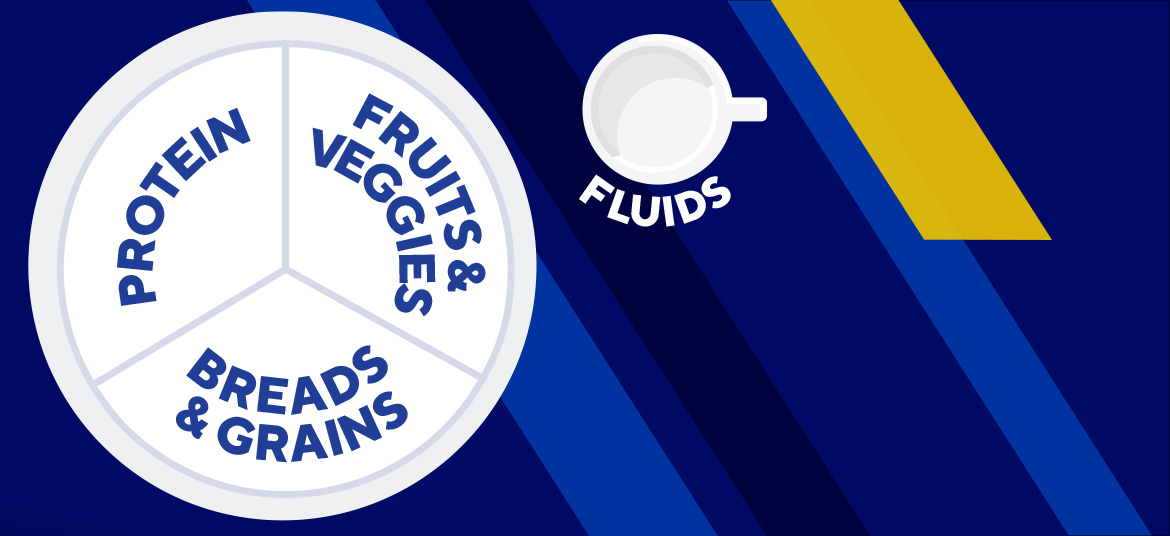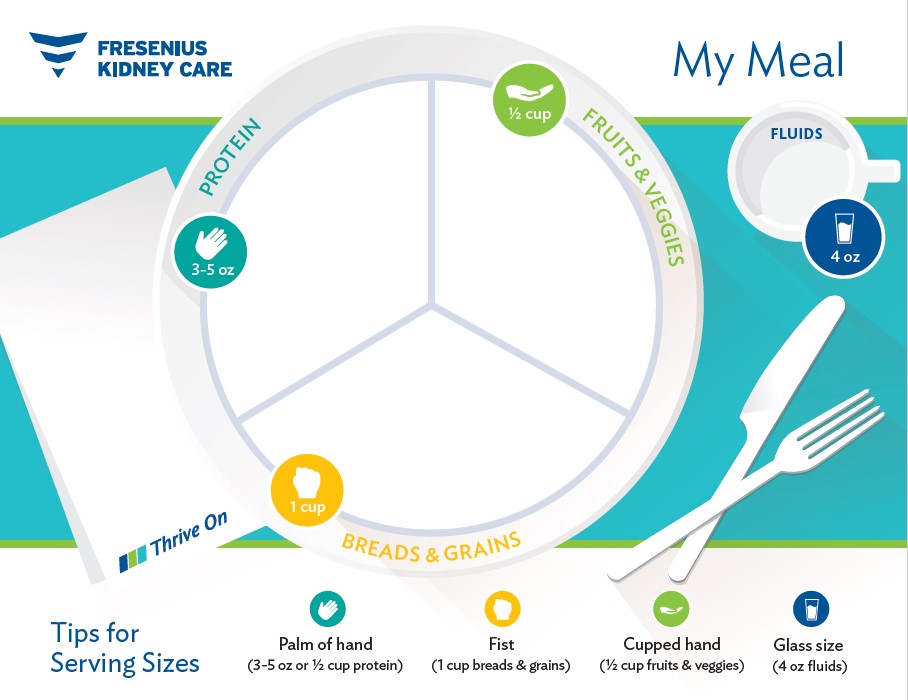

How Kidney-Friendly Diets Enhance Chronic Kidney Disease Patient Outcomes
One effective way to stem the progression of chronic kidney disease (CKD) is diet management. Promoting a kidney-friendly diet, especially in the early stages of CKD, gives patients the resources and support to take an active role in their health and wellbeing. Proper nutrition is essential, but CKD patients may not be familiar with kidney-friendly eating. That’s why Fresenius Kidney Care offers a wealth of information and motivation to share with your patients to help guide them through their journey.
The Importance of Dietary Intervention
Early intervention is critical. Patients who understand how to eat well with kidney disease and are informed about their treatment options are more successful at self-management and tend to have better outcomes than those who don’t.1,2 Through kidney-conscious eating and monitoring nutrient intake, some kidney function can be preserved, slowing the progression of CKD.
Comorbidities can present challenges, but a modified diet for kidney disease can support multiple health conditions. Because kidney disease can exacerbate high blood pressure, Dietary Approaches to Stop Hypertension (better known as the DASH diet) is considered a good system for patients with early stage CKD.3 The DASH diet emphasizes eating fresh produce, whole grains, and lean protein while minimizing sodium and sugars. For patients living with diabetes as well as kidney disease, adhering to a modified diabetic renal diet and providing a specific kidney disease food list can help manage both conditions at once.4 Additionally, studies show that regular consumption of plant-based proteins slows kidney disease progression and positively impacts mortality rates.5,6
Educational Dietary Resources to Help Patients Thrive
Naturally, people tend to be reluctant to change their eating habits, but CKD patients should be active participants in their own healthcare. Establishing a manageable diet for kidney disease as early as possible and educating patients on the actual impact of nutrition motivates them to eat well. Providing guidance on proper portion sizes in addition to the impact of nutrition helps them succeed. For those providers who participate in Comprehensive Kidney Care Contracting (CKCC) Options, refer patients to a dietitian for support and individualized consultation.
Help patients become comfortable supporting their health with encouraging and straightforward instruction on how to adhere to a kidney-friendly diet. Patient-facing resources from Fresenius Kidney Care are easy to browse and understand. The various aspects of kidney disease and dietary guidance are broken down into manageable portions, with a focus on prevention and slowing disease progression. Patients can access kidney-friendly recipes, meal-planning tips, specialty or comorbidity diets, and much more, including:
- Eating Well on a CKD Diet. Patients are reminded that people following a kidney-friendly diet should minimize sodium intake, reduce phosphorus and potassium, and opt for heart-healthy proteins.
- Grocery Shopping Made Simple with a Kidney-Friendly Food List. Eating and creating kidney-friendly meals at home is made easier with a specialized shopping list.
- Eat, Drink & Be Healthy. Processed and high-sodium foods are common in restaurants but with careful planning, people can dine out while adhering to a kidney disease diet.
- Kidney-Friendly Eating Tips for the Winter Holidays. This guide provides practical tips and tricks for eating well during the holidays.
- Managing Multiple Health Conditions While on Dialysis. Comorbidities are common with CKD; specialized resources like these help patients find their balance.
Fresenius Kidney Care’s popular cookbooks and online library of recipes offer real-world inspiration for creating meals that fit into a kidney-friendly diet.
- Downloadable kidney-friendly cookbooks. This collection of cookbooks helps patients find the right kidney-friendly recipe for any occasion.
- Kidney-friendly recipes. Discover dietitian-approved recipes that are compatible with a wide range of preferences and dietary requirements.
Additionally, Fresenius Kidney Care provides a free kidney disease education class to help newly diagnosed patients learn about basic kidney health and treatment options. This overview class can be delivered in person, via video, by phone with a Kidney Care Advocate (KCA), or as a self-paced online course. KCAs work closely with physicians to act as a point of contact to help educate and support patients. Course content covers symptoms and stages of CKD, eating well on a kidney-friendly diet, treatment options, holistic information about kidney disease, and available resources.
Direct and Easily Digestible Information Goes a Long Way
Patients can and should be educated on the importance of eating well at every stage, but earlier intervention is most effective at slowing the progression of CKD. Sharing valuable resources about kidney-friendly diets and stressing the importance of supporting health through nutrition can help your patients achieve better outcomes and feel healthier for longer.
Resources:
- Lopez-Vargas PA, Tong A, Howell M, Craig JC. Educational Interventions for Patients With CKD: A Systematic Review. Am J Kidney Dis. 2016 Sep;68(3):353-70. doi: 10.1053/j.ajkd.2016.01.022.
- Lee H, Park HH, Jo IY, Jhee JH, Park JT, Lee SM. Effects of Intensive Individualized Nutrition Counseling on Nutritional Status and Kidney Function in Patients With Stage 3 and 4 Chronic Kidney Disease. J Ren Nutr. 2021 Nov;31(6):593-601. doi: 10.1053/j.jrn.2020.10.001.
- Rebholz CM, Crews DC, Grams ME, Steffen LM, Levey AS, Miller ER 3rd, Appel LJ, Coresh J. DASH (Dietary Approaches to Stop Hypertension) Diet and Risk of Subsequent Kidney Disease. Am J Kidney Dis. 2016 Dec;68(6):853-861. doi: 10.1053/j.ajkd.2016.05.019.
- "Diabetes and Kidney Disease: What to Eat?" Centers for Disease Control and Prevention, last reviewed August 10, 2021, https://www.cdc.gov/diabetes/managing/eat-well/what-to-eat.html.
- Chen X, Wei G, Jalili T, Metos J, Giri A, Cho ME, Boucher R, Greene T, Beddhu S. The Associations of Plant Protein Intake With All-Cause Mortality in CKD. Am J Kidney Dis. 2016 Mar;67(3):423-30. doi: 10.1053/j.ajkd.2015.10.018.
- Alvirdizadeh S, Yuzbashian E, Mirmiran P, et al. A prospective study on total protein, plant protein and animal protein in relation to the risk of incident chronic kidney disease. BMC Nephrol. 2020; 21:489. https://doi.org/10.1186/s12882-020-02079-y.


